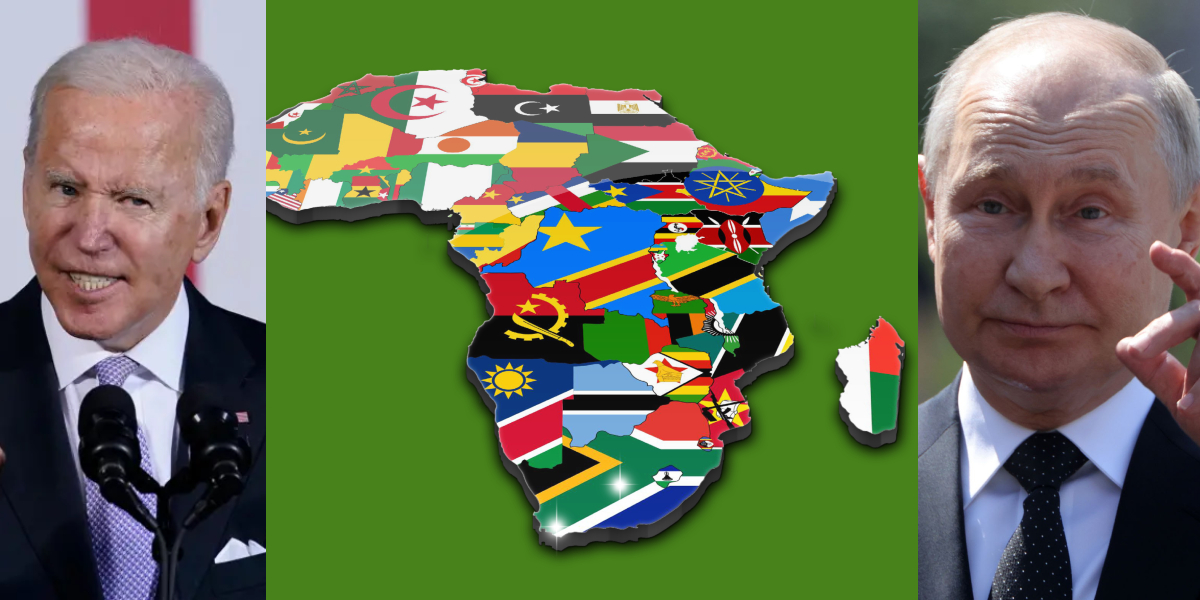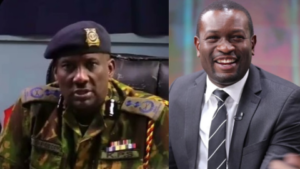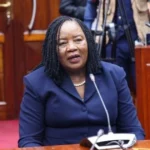The United States is stepping up efforts to maintain its influence in Niger and counter any potential gains by Russia. Despite initial concerns about the country’s alignment, U.S. officials are cautiously optimistic that long-standing military ties will prevail and keep Niger within the Western sphere.
Niger’s strategic significance as a linchpin in US and French anti-jihadist operations in the Sahel has come under renewed focus since the military takeover in neighboring Mali, which embraced Russia’s Wagner mercenary force.
Read also: Ukraine Unmasks a Network of Alleged Russian Female Agents in Donetsk
Victoria Nuland, the acting deputy secretary of state, conducted an unannounced visit to Niamey to assess the situation firsthand.
While acknowledging slow progress in reversing the coup, Nuland highlighted the military leaders’ awareness of the risks associated with inviting the Wagner group.
![U.S. State Department Under Secretary for Public Affairs Victoria Nuland attends a news conference at the Presidential Palace in Nicosia, Cyprus, April 7, 2022. [Photo/Courtesy]](https://news.switchtv.ke/wp-content/uploads/2023/08/2KHGZADOVNN5HPI5VU4GDG5RBY.webp)
“We are hopeful that that will sink in,” Nuland stated, emphasizing the historical cooperation between the US and Niger’s military.
Brigadier General Moussa Salaou Barmou, the newly appointed military chief of staff, who has collaborated closely with U.S. Special Forces, was a primary interlocutor during Nuland’s visit.
Secretary of State Antony Blinken, who recently made a historic visit to Niger, asserted that Russia was not behind the coup but cautioned that the Wagner group might attempt to exploit the situation.
U.S. policymakers have noted Russian influence operations post-coup, including social media campaigns and rallies supportive of the military takeover.
NULAND REÚNE-SE COM MEBROS DA JUNTA MILITAR DO NÍGER
— geopol•pt (@GeopolPt) August 8, 2023
🇳🇪🇺🇸 A vice-secretária de Estado em exercício, Victoria Nuland, encontrou-se com o general Moussa Salaou Barmou, o autoproclamado chefe da defesa, e com três coronéis da junta militar do Níger na segunda-feira e manteve mais… pic.twitter.com/iDI80gbwdn
Analysts suggest that Russia’s offer to break isolation may be appealing to Niger’s military, which has maintained relations with the United States.
Cameron Hudson, an Africa expert at the Center for Strategic and International Studies, underscored the complexities surrounding Niger’s position, stating, “Washington was operating under the impression that they were engaged with a very reliable Western partner.”
Russian involvement in Africa, particularly through the Wagner group, has extended to conflicts in Sudan, Libya, and Burkina Faso.
![The visit reinforces the Biden-Harris Administration’s focus on Africa. In Niger, Under Secretary Nuland met with President Mohamed Bazoum and Minister of Foreign Affairs Massoudou where they discussed bilateral and multilateral solutions to bolster Niger’s economy, strengthen democracy, and improve security.[Photo/ U.S. Embassy in Niger]](https://news.switchtv.ke/wp-content/uploads/2023/08/2021-08-05-US-Nuland-Remarks-to-Nigerien-Press-1140x684-1.webp)
The group’s tactics have drawn condemnation, with UN investigators documenting brutal military actions resulting in mass casualties.
However, Wagner’s connection to valuable natural resources and Russia’s diplomatic gains have maintained its relevance despite international criticism.
Read also: Coup Wave in Africa Fuels Geopolitical Tensions: An opportunity for Russia
Heather Ashby, acting director of the Center for Russia and Europe at the U.S. Institute of Peace, noted the intricate network that Yevgeny Prigozhin, the head of Wagner, has established.
“It’s lucrative for Russia to continue along these lines. And so, I don’t anticipate that Wagner will go anywhere,” Ashby said.
Subscribe to Switch TV
















